Success Story: Estelle Ahobade, a woman pineapple processor expanding into the regional markets

Mrs. Estelle Ahobade, Managing Director of the Zoe Rohi, pineapple processing company, a beneficiary of PINEX project in Benin
In 2018, Estelle graduated from The National School of Applied Economics and Management as a Bank Affairs specialist. After two years in an international company as a junior staff member, she resigned and decided to create her own business.
In 2020, she noticed the breadth of pineapple post -harvest loss as an opportunity for business. Estelle decided to start processing the pineapple into juice to address that post-harvest loss. This is where her business story started, with Zoe Rohi as the name of her micro company in a small, rented apartment in Cotonou. With the assistance of her husband and children, Estelle ran her family business Zoe Rohi to grow. She wanted to scale up her production, but limited by the tightness of their apartment, the small size of the processing equipment she was using and the low running capital fund and access to fresh pineapple.
Estelle addressed the raw materials challenge first, by moving to a village in the Municipality of Ze where most pineapple is grown. Contracting with pineapple producers, Estelle could gradually increase her juice productivity and add more processing equipment. Once again, she was confronted with the lack of an outlet market to sell her products.
By confiding in one of her processor friends, Estelle heard of and got PINEX project contacts. PINEX was interested in Zoe’s business. Estelle and her staff benefitted from training in hygiene and processing best practices to meet quality standards for her juice. PINEX assisted Zoe Rohi company to obtain the ECOWAS Trade Liberalization Scheme (ETLS) certificate that gives her juice access to the regional market of 15 ECOWAS country members. PINEX gave Estelle the opportunity to take part her first prospective tour in Senegal.
Estelle’s foray into ECOWAS brought her a wealth of business opportunities to supply her pineapple juice to the Senegalese market on a regular basis. Estelle confided to PINEX that the Senegal experience opened and broadened her mind on the great opportunities in regional markets. Estelle has recorded a 40% increase in turnover thanks to PINEX’s support in marketing her products at regional fairs sponsored by PINEX. Zoe Rohi has sold 140MT of pineapple juice in regional markets valued at $99,200 in 2022. Zoe Rohi employs 15 staff including nine women. She hopes to become one of the leading pineapple processing companies supplying pineapple juice in West Africa and in international markets soon.
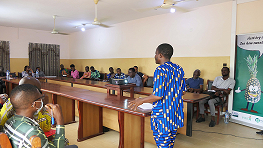
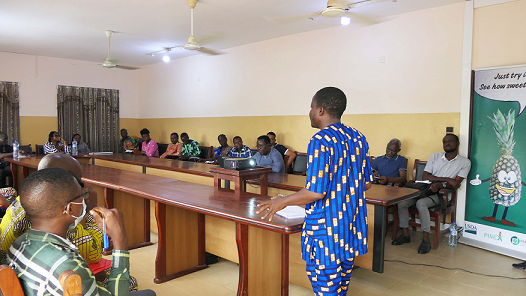
Credit Program Officer, Ferdinand Dahoueto is addressing participants questions on the quality of loan application. Abomey-Calavi, April 2023. Credit: Epiphane Adjadji, PfD.
Based on the observation that many micro, small and medium-sized enterprises struggle to pass the application review stage with microfinance institutions, PfD initiated this information and awareness session led by FECECAM on the content of a loan application file. Participants were given a detailed explanation of the various components of the file to be submitted, the different types of guarantees, the facilitation of the National Agricultural Development Fund (FNDA), the importance of the professional card and the need to organize themselves into a formal company.


Alladjodjo CEO of the Pineapple processing company, PROMO Fruit from Benin Republic. Credit: Epiphane Adjadji,PfD
In 2001, Mr. Dieudonne Aladjodjo, a pineapple farmer based in Allada, southern Benin where pineapple is grown, created the Promo Fruit Benin processing company to process Benin’s sweet Sugar Loaf pineapple into juice for local markets. He called the juice IRA, in recognition of his pineapple farmers’ association, Initiative to Promote Pineapple (Initiative pour la Relance de l’Ananas, IRA in French). Mr. Aladjodjo was soon selling IRA pineapple juice in stores and markets throughout Benin.
Over the years. Promo Fruits Benin grew steadily and by 2014 it began to sell IRA pineapple juice in some neighboring countries, including Niger, Burkina Faso, and Ivory Coast.
In 2016, Promo Fruit Benin began working with the Pineapple Processing for Export (PINEX) project. Specifically, PINEX trained Promo Fruit staff on best processing and hygiene practices and included it on several trade fairs both in Benin and internationally. Travel to international markets enabled Promo Fruits Benin to execute contracts with buyers in both Senegal and Morocco. Close to 90% of Promo Fruits Benin business is to regional countries, with sales topping $8.1 million in 2021.
To meet increased demand for these international contracts and to help Promo Fruits Benin grow further, PINEX has worked with the company in several key areas: (a) Boosting productivity and pineapple quality by employing more modern farming techniques — in an environmentally sustainable manner that also emphasizes gender sensitivity and better labor practices; (b) Improving physical infrastructure by partnering with them to build a warehouse in February 2019 that is 48 ft in length by 34 ft in width and 12 ft in height; (c) Providing a mechanism for ongoing training of its 2,880 members with a dedicated classroom located beside the warehouse; (d) Improving access to key inputs for producers as the company buys fertilizer and then provides to members on credit, with the cost of the fertilizer being subtracted from the amount Promo Fruits Benin pays the members for their pineapple harvest; (e) Increasing access to credit, specifically training IRA Loan Officers in vetting applications, helping producers draft stronger loan applications, implementing loan management software, and providing tablets and motorcycles for IRA Loan Officers.

Canned Pineapple Juice from Promo Fruit being loaded in a truck for the Nigeria market. Credit: Epiphane Adjadji, PfD
For several years, Promo Fruits Benin has aimed to enter the Nigeria market — in the formal sector, not through the Black Market or underground economy. Given that Nigeria is next door to Benin, has a large population of over 200 million persons, has no other countries supplying pineapple in meaningful quantities (unlike in Europe where Costa Rica and its multinational partners Dole and Del Monte have huge market share), and has a structural demand for fresh and processed pineapple products (it produces about four times as much pineapple as Benin but has a population about fifteen times larger), trade potential there is enormous. In October 2020, Promo Fruits Benin finally secured an approval from Nigeria’s National Agency for Food & Drug Administration (NAFDAC), an impressive feat given that agency’s considerable red tape and very large fees for approval. PINEX then began working with Promo Fruits Benin to plan a market tour of Nigerian juice distributors and retailers.
Before traveling to Nigeria, PINEX assisted Promo Fruit Benin to design and print 5,000 IRA juice publicity posters and flyers to be distributed during the market tour. Then from August 16th to 29th 2021, PINEX assisted Mr. Aladjodjo and his marketing manager, Mr. Lantefo, to conduct a two-week market tour within Lagos, Nigeria’s most populous city of 22 million people, and to Abuja, Nigeria’s capital in the central part of the country. During the two-week market tour, they visited 20 wholesale and retail juice buyers, promoting IRA juice, which is 100% pineapple juice with no extra sugar or other additives; they gave out hundreds of juice samples so buyers could taste and see the quality themselves
By the end of the tour, Promo Fruit had sold an initial 2,500 cartons of 24 eight-ounce cans of IRA juice (480,000 ounces), valued at $22,000 and had negotiated contracts with three Nigerian companies for 800,000 ounces a month of pineapple and pineapple-ginger blend juices to test out their market. Though these initial Nigerian sales make up a very small percentage of Promo Fruits Benin’s export sales, Mr. Aladjodjo plans a second marketing trip to Nigeria in April 2022 to visit his new customers and expand sales to other cities. His goal is to make IRA pineapple juice as well-known in Nigeria as it is in Benin.
Pineapple Processing for Export (PINEX) is a $14.76 million, eight-year project funded by the United States Department of Agriculture (USDA). PINEX has three goals of improving pineapple productivity, improving product processing, and increasing pineapple trade.
The proximity of Benin to Nigeria represents a huge market opportunity for PINEX project beneficiaries, especially pineapple processing companies. However, before Benin’s pineapple processors can get access to the Nigerian market, all products going into Nigeria must be registered with the National Agency for Food and Drug Administration and Control (NAFDAC).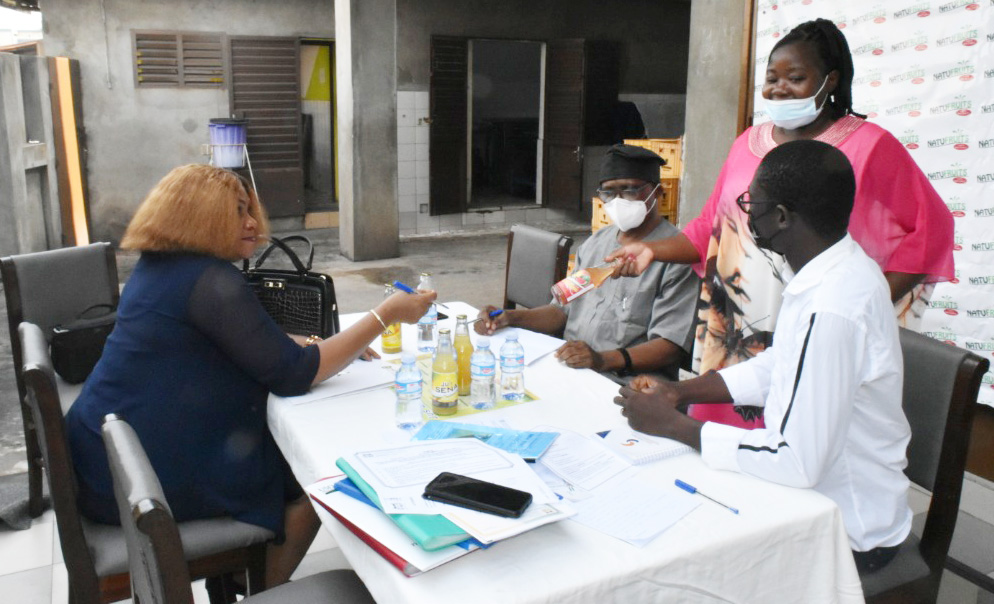
NAFDAC’s mandate is to protect Nigeria’s public health by instituting a regulatory system that ensures only high-quality food and drugs are manufactured, exported, imported, advertised, distributed, and sold in Nigerian markets. For years, Benin pineapple processors have tried to get a NAFADAC agreement, without success.
Partners for Development (PfD/Benin), through avast cleanup serial key 2017 the PINEX project and with help from PfD/Nigeria, organized an insightful two-day training on November 15th and 16th, 2021 followed by three days of site visits of six pineapple processors. During the training, the Nigerian consulting firm, Gill Consultancy tackled the NAFDAC requirements for registering Benin’s pineapple products. During the factory site visits, the consultants asked the pineapple processors questions and conducted inspections that the processing license key bytefence free 2018 companies could expect during a real NAFDAC audit. At the end of the training and site visits, the pineapple processors stated they understood a lot more about NAFDAC.
From November 25 to 28, 2021, several pineapple processing companies, and organic fertilizer producers, all beneficiaries of the Pineapple Processing for Export (PINEX) Project, took part in Benin’s first International Agricultural, Agribusiness Modernization Exhibition, SIMA, held at the Mathieu Kerekou Friendship Stadium in Cotonou.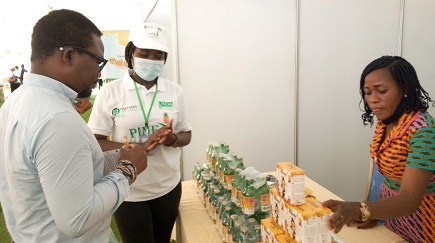
The SIMA aimed to enhance Benin’s agricultural and agribusiness potential by integrating modern mechanization into production and processing to increase agricultural product yields. It also presented new technological solutions adapted to African environments for successful agricultural developments, especially during codigo de licencia teamviewer 12 COVID-19.
PINEX’s support enabled 11 pineapple processing companies, including CARDA, Benin Discount, CFTB, CSFT, ISTMAST Trading, CODJEA, TRANS AGRO INDUSTRIE, OJA, and GOLDEN CORPORATE, to participate in SIMA. The presence of PINEX beneficiaries at SIMA helped make their pineapple products malwarebytes 3.2.2 key better known to the many visitors who love pineapple and its processed products. The event was a great opportunity for them to make new business contacts and gain new customers
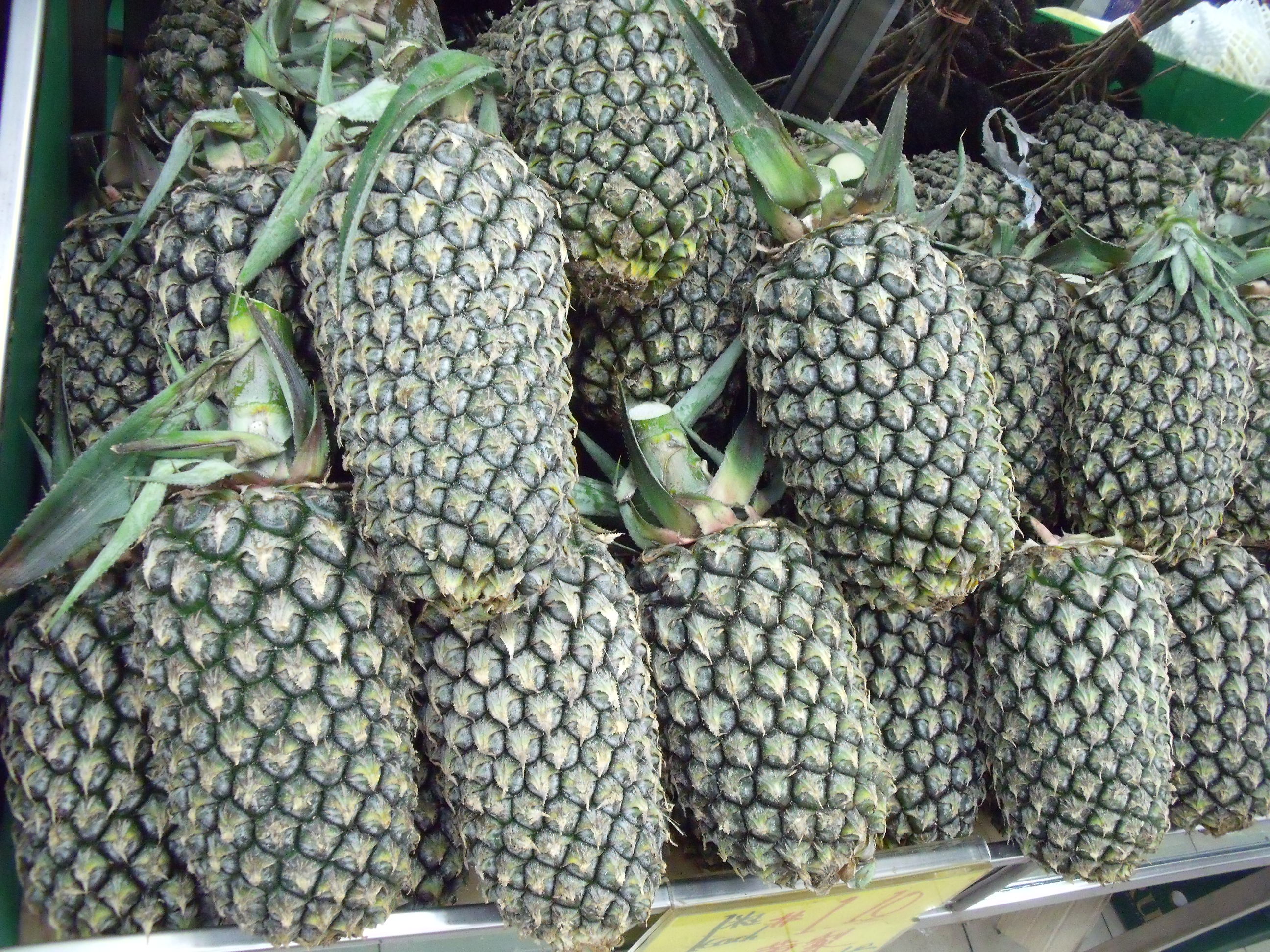
Today, June 27th, is World Pineapple day! At PfD we love this sweet, tangy, and delicious fruit, which has been integral to our efforts to promote economic growth in Benin. In this West African nation, Pineapples are the third most valuable crop in terms of GDP. Our Pineapples for Export (PINEX) project, launched in 2015, aims to strengthen all levels of the Beninese pineapple value chain.
Through activities such as building producers’ technical capacity and improving their access to resources (i.e. capital), PINEX is enabling the Beninese pineapple industry to increase productivity, improve quality, and increase exports. As Benin is heavily dependent on its agricultural trade, the Pineapple industry is improving the livelihoods of the Beninese people, and to us at PfD this is cause for celebration!
Pineapple Trivia!
Last year, we brought you 5 things you didn’t know about pineapples. This year, we have prepared pineapple trivia to test your knowledge!

#1 Pineapples are native to ____________.
- Sub-Saharan Africa
- East Asia
- South America
- North-Africa
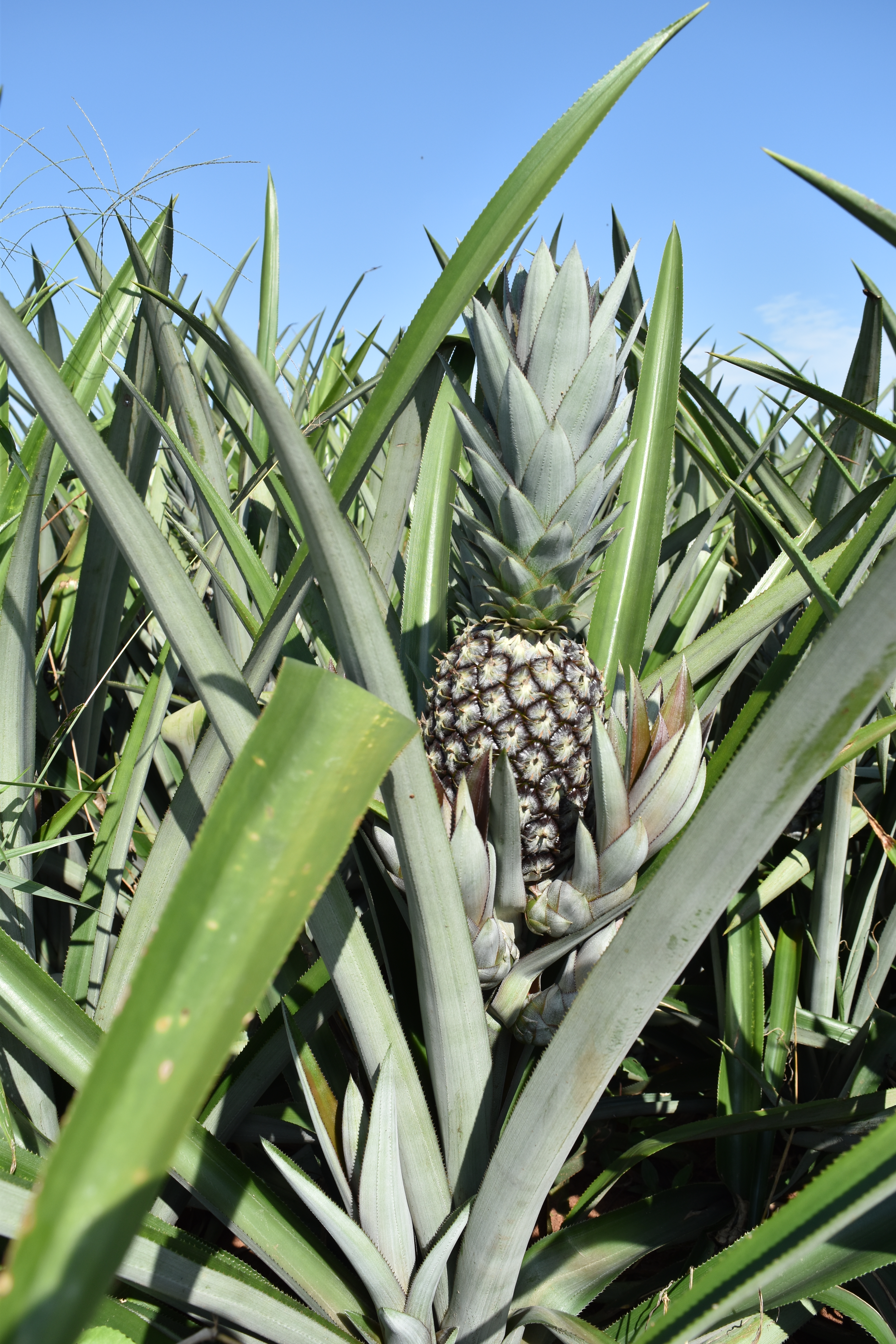
#2 Which country exports the most pineapples
- Costa Rica
- Benin
- South Africa
- Netherlands
#3 In which region are the majority of the world’s pineapples grown?
- Europe
- South America
- Southeast Asia
- Central America
#4 Once harvested, pineapples ripen within a week.
- True
- False
#5 The skins, core, and ends of a pineapple can be used to make which of the following?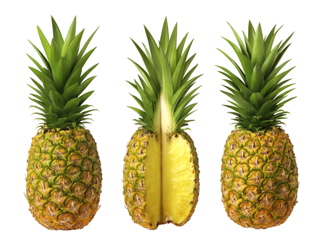
- Alcohol
- Vinegar
- All of the above
- None of the above
#6 What color are the pineapple plant’s flowers?
- Red
- Yellow
- Orange
- Trick question, pineapple plants don’t have flowers
Extra Credit Question
#7 What is your position on the age old debate about whether or not pineapple an appropriate pizza topping?
- I love some pineapple on my pizza!
- Pineapple does not belong on pizza!
- I can write you an essay about my stance
- I am undecided on the issue
Below are the trivia answers. Find out how you did!
#1 C #2 A #3 C #4 False #5 C #6 A


